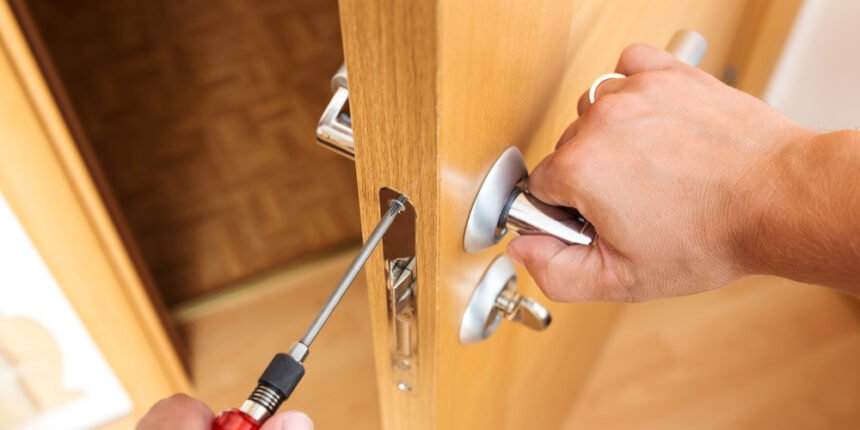Locksmith services are essential for maintaining security and providing assistance during lockouts, but not all locksmiths operate with integrity. Unfortunately, scam locksmiths prey on individuals in vulnerable situations, charging exorbitant fees, damaging property, or providing subpar services. Knowing how to spot a scam locksmith can save you from financial loss and unnecessary stress.
This article will help you identify the signs of a scam locksmith and provide actionable tips to protect yourself when hiring a professional.
Common Tactics Used by Scam Locksmiths
Scam locksmiths often employ deceptive practices to take advantage of unsuspecting customers. Here are some common tactics they use:
1. Unbelievably Low Initial Quotes
Scam locksmiths lure customers with exceptionally low prices, such as “$15 service calls.” However, once they arrive, they inflate the cost by claiming additional fees for labor, parts, or unforeseen complications.
2. Lack of Identification or Credentials
A Reputable locksmith in Bishops Stortford will carry proper identification, licenses, and credentials. Scam locksmiths often avoid providing proof of their legitimacy.
3. Generic or Non-existent Company Name
Scammers may operate under vague or generic names like “Locksmith Services” or “Local Locksmith.” They may avoid giving a specific company name over the phone or list false addresses on their website.
4. Insistence on Drilling the Lock
Professional locksmiths are trained to open most locks without causing damage. Scam locksmiths, however, often claim drilling is necessary to charge for new locks and additional labor.
5. No Marked Vehicle or Uniform
A legitimate locksmith typically arrives in a clearly marked vehicle and wears a uniform or carries branded materials. Scam locksmiths often show up in unmarked vehicles without professional attire.
6. Upfront Payment Demands
Some scammers may demand full payment before starting the job or only accept cash, leaving you with no recourse if the service is subpar.
How to Identify a Legitimate Locksmith
To avoid falling victim to a scam locksmith, it’s essential to know the characteristics of a reputable professional:
1. Verify Their Credentials
Ask for proof of licensing, certification, and insurance. Many states require locksmiths to be licensed, so check your local regulations and ensure the locksmith meets them.
2. Research the Company
Before hiring, do some research:
- Check online reviews on platforms like Google, Yelp, and the Better Business Bureau (BBB).
- Look for a physical address and verify it via Google Maps. Scam locksmiths often use fake addresses.
- Ensure their website appears professional and provides clear contact information.
3. Request a Written Estimate
Ask for a detailed, written estimate before agreeing to the service. This should include all potential fees, such as labor, parts, and emergency surcharges. If the locksmith refuses, it’s a red flag.
4. Ask About Tools and Techniques
Professional locksmiths use specialized tools and non-destructive methods to open locks. If the locksmith immediately suggests drilling, get a second opinion.
- Confirm Their Identity
When the locksmith arrives, ask for identification and ensure their name matches the one you were provided during the booking process. Look for branded materials such as a company logo on their uniform or vehicle.
- Avoid Paying Upfront
A legitimate locksmith in Harlow Essex will typically request payment only after the job is completed to your satisfaction. Be cautious of those demanding upfront cash payments.
Tips to Protect Yourself from Locksmith Scams
Now that you know how to spot a scam locksmith, here are some proactive steps you can take to protect yourself:
- Keep a Trusted Locksmith’s Contact Information
Research and identify a reputable locksmith in your area before an emergency arises. Save their contact information so you’re not scrambling to find help during a lockout.
- Avoid Rushed Decisions
Scammers often rely on the urgency of lockout situations to pressure you into making hasty decisions. Take your time to research and verify the locksmith, even in an emergency.
- Use Local Locksmiths
Choose a locksmith with a verified local address and phone number. National call centers may dispatch unknown contractors who may not have proper credentials.
- Trust Your Instincts
If something feels off—whether it’s the locksmith’s behavior, pricing, or lack of professionalism—trust your gut and consider finding another service provider.
- Check Payment Options
Reputable locksmiths accept multiple forms of payment, including credit cards. Avoid locksmiths who only take cash, as it may indicate a lack of accountability.
What to Do If You’ve Been Scammed
If you suspect you’ve been scammed by a locksmith, take the following steps:
- Document the Incident: Take photos of any damage, keep receipts, and note the locksmith’s name and contact details.
- File a Complaint: Report the scam to your local consumer protection agency, the Better Business Bureau, or the Federal Trade Commission (FTC).
- Leave a Review: Warn others by leaving an honest review of your experience on online platforms.
- Contact Your Bank: If you paid with a credit card, dispute the charge with your bank or credit card company
Conclusion
Locksmith scams are a frustrating and costly experience, but by staying vigilant and informed, you can avoid falling victim to them. Always research locksmiths, verify their credentials, and trust your instincts. Taking proactive measures, such as keeping the contact information of a reputable locksmith, ensures that you’re prepared for emergencies without risking your security or finances.
When in doubt, remember that a professional locksmith prioritizes transparency, customer satisfaction, and non-destructive solutions. Choose wisely to protect your home, car, or business from both intruders and scams.
For More Information Visit Timelymagazine








